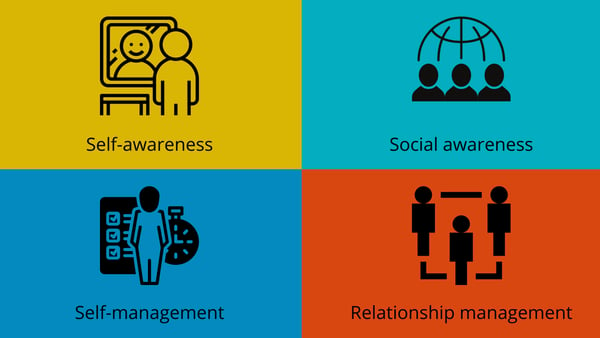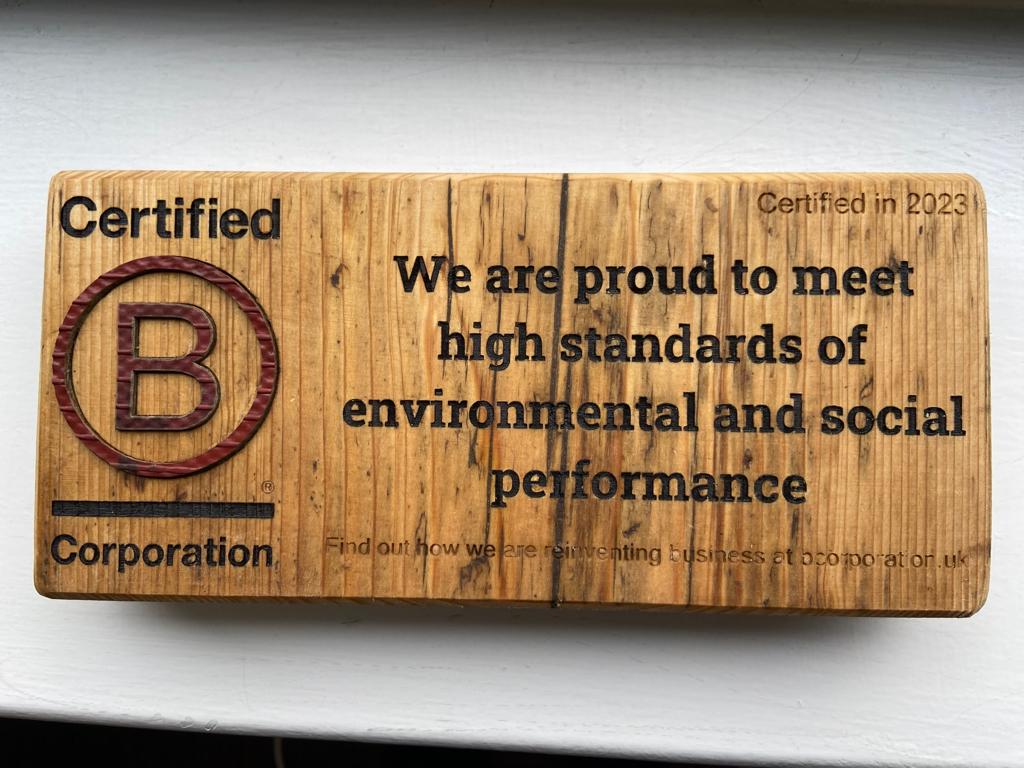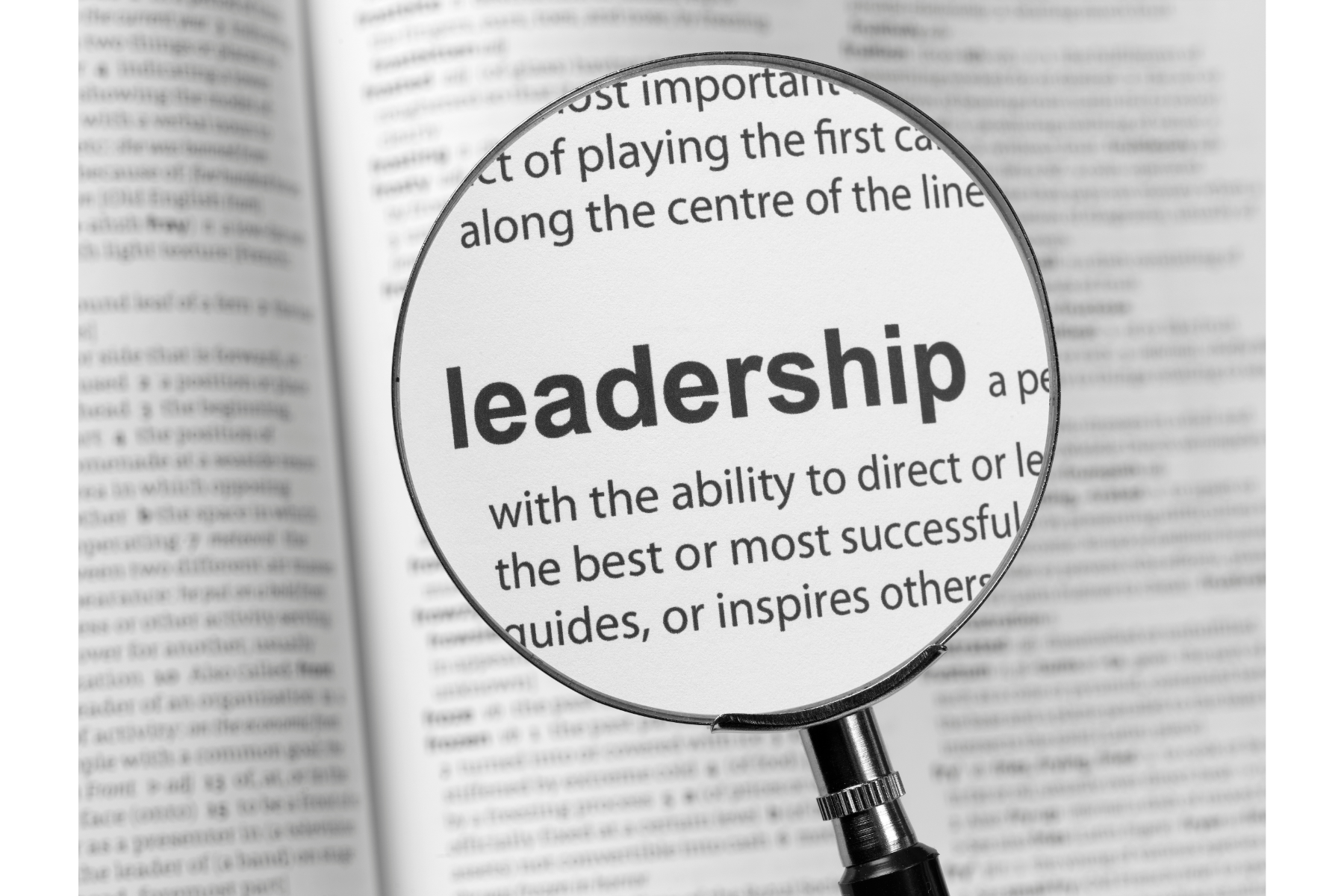Workplace conflict is estimated to cost the UK economy £28.5bn (Acas, 2021) with nearly half a million employees resigning each year as a result of conflict.
Last month our LEAD™ delegates had a masterclass on Emotional Intelligence (EI), which is a fundamental ingredient in leadership success and can help us to respond effectively to challenging situations.

Self-awareness
Self-aware leaders have the ability to understand, use and manage their own emotions, and those of the people around them, and to use that information to guide their thinking and behaviour.
"When we see ourselves clearly, we are more confident and more creative. We make sounder decisions, build stronger relationships, and communicate more effectively... and we’re more effective leaders with more satisfied employees and more profitable companies." – Tasha Eurich
Leaders who are self-aware know how to recognise potential flashpoints in themselves and others and have the communication skills to ensure that the conversation is productive and leads to the best outcome.
Self-management
It is ‘self-management’ which plays a key role in allowing us to navigate our thoughts, feelings and emotions in order to make appropriate decisions; keep our focus; and approach problems and issues with a clear head.
Self-management has been described as the component of emotional intelligence that ‘keeps disruptive emotions from throwing us off track’ (Daniel Goleman, The New Leaders) and it refers to our ability to manage our behaviors, thoughts, and emotions.
When we suffer an ‘emotional hijack’ in a stressful situation, emotionally intelligent leaders can recognise those negative emotions whilst remaining clear-headed and calm.
Social awareness
Social awareness and empathy is a crucial skill in conflict resolution. Empathy refers to
“the ability to share someone else's feelings or experiences by imagining what it would be like to be in that person's situation” (Cambridge Dictionary)
We don’t have to agree or share their viewpoint, but by understanding their perspective, we can acknowledge the other person’s feelings or frustrations and try to find a reasonable course of action.
Relationship Management
Goleman described relationship management as the ability where the triad of self-awareness, self-management and empathy all come together.
Influence, communication and conflict management are all aspects of relationship management which are relevant for leaders and managers when dealing with challenging situations.
Rather than avoid potentially difficult or awkward conversations, people with strong conflict management skills confidently tackle the issue in a timely and constructive way.
Here are our tips for using your emotional intelligence to respond effectively to difficult conversations:
1. Don’t avoid the issueBy failing to tackle difficult conversations, managers allow issues to continue unchecked which can lead to resentment, frustration and often an escalation in the behaviour. Having ‘difficult conversations’ is a skill - and like all skills, practice will help to improve that skill and build confidence.
Take time to understand your emotions and figure out why you are feeling what you are feeling. Once you have worked out what you are feeling, then you can communicate it better to the other person.
2. Become more curiousInstead of being confrontational, show genuine interest into why the person feels or acts in a certain way. People make mistakes so it may be that it was an unintentional error or a blind spot.
By practising active listening; listening without interrupting and asking thoughtful, open-ended questions you can better understand the other person’s point of view. Use the word ‘I’ as this reduces confrontation and it conveys to the other person your perspective and feelings. They may not realise the effect their actions have on others or you.
3. Reduce your ‘emotional hijack’Controlling your emotional response and maintaining a positive attitude can help you to keep discussions focused, calm and productive. In stressful situations, our body can automatically go into ‘fight-flight mode’ which then hijacks the rational part of your brain, which can prevent you from being able to think logically. So if you feel yourself getting worked up, take a few deep breaths which can help to calm down your nervous system and give yourself time. If necessary, step away until the ‘thinking’ part of your brain is back in control and you can choose the best way to respond to the situation.
4. Prepare for the conversationPreparing for and effectively structuring the conversation can help to keep it focused on fact, behaviour and the desired outcome.
Think about your end goal. For example, do you want them to acknowledge and accept your feedback and act on it, or do you want to have a discussion and explore the possible causes of an issue? Consider where you need to hold the conversation and whether you have the evidence / information that you need to support your feedback. And be prepared for the other person to want to share their point of view. What questions do you need to ask to make sure that you have taken their perspective into consideration?
5. Use structure to positively influence the outcome of the conversationLeaders can use their influencing and communication skills by appropriately structuring a difficult conversation to reduce emotion, keep it focused, and identify a way forward. When giving feedback, start by describing the behaviour but remain objective and focus on the behaviour, not on the individual. Say what happened as a result of this behaviour, but again be factual. Share the impact of the behaviour and how you feel as a result of what happened. Finally, focus on what you want them to start doing, continue or stop doing in future.
A leader’s emotional intelligence therefore plays a crucial role in their ability to tackle difficult conversations. As a leader, by developing, practising and honing this skill and by focusing on your emotional intelligence, you can improve your own effective leadership performance as well as helping your team to achieve their best potential.
As your thoughts start to turn to the new year, consider what investment you'd like to undertake in your development, your team's development and your organisation's development. Our next program for developing middle and junior managers (LEADlight) starts in January 2022, and our next effective leadership program (LEAD™) for senior leaders and managers starts after Easter in April 2022. To talk to one of our team about the programs and how they could benefit you and your organisation, please get in contact with Jo Draper here.
Don't miss out on reading our blog - sign up to it below to get it delivered to your inbox every Tuesday. Topics include leadership, management, strategy, leading change, leading teams, employee engagement, Good Dividends and many more.




